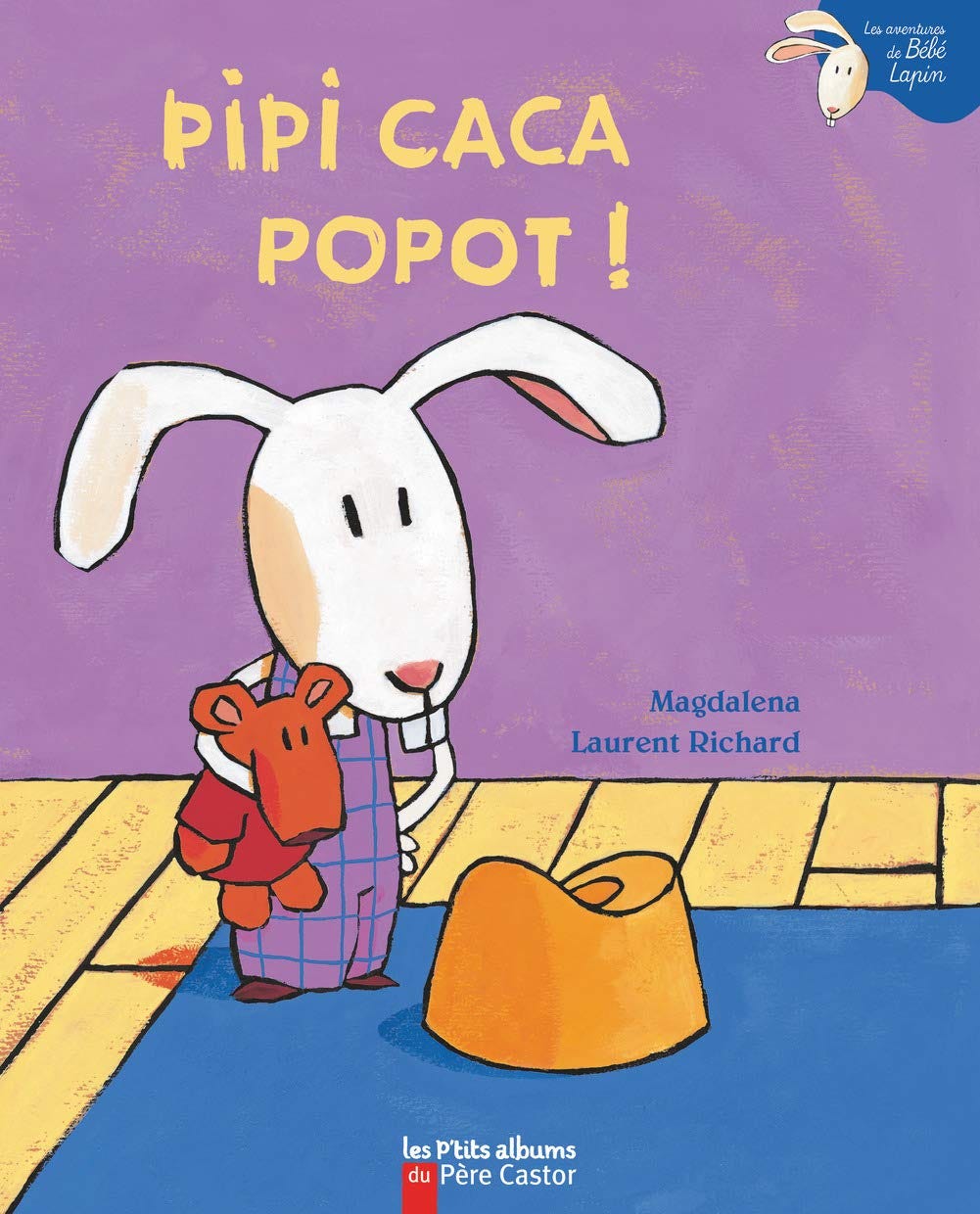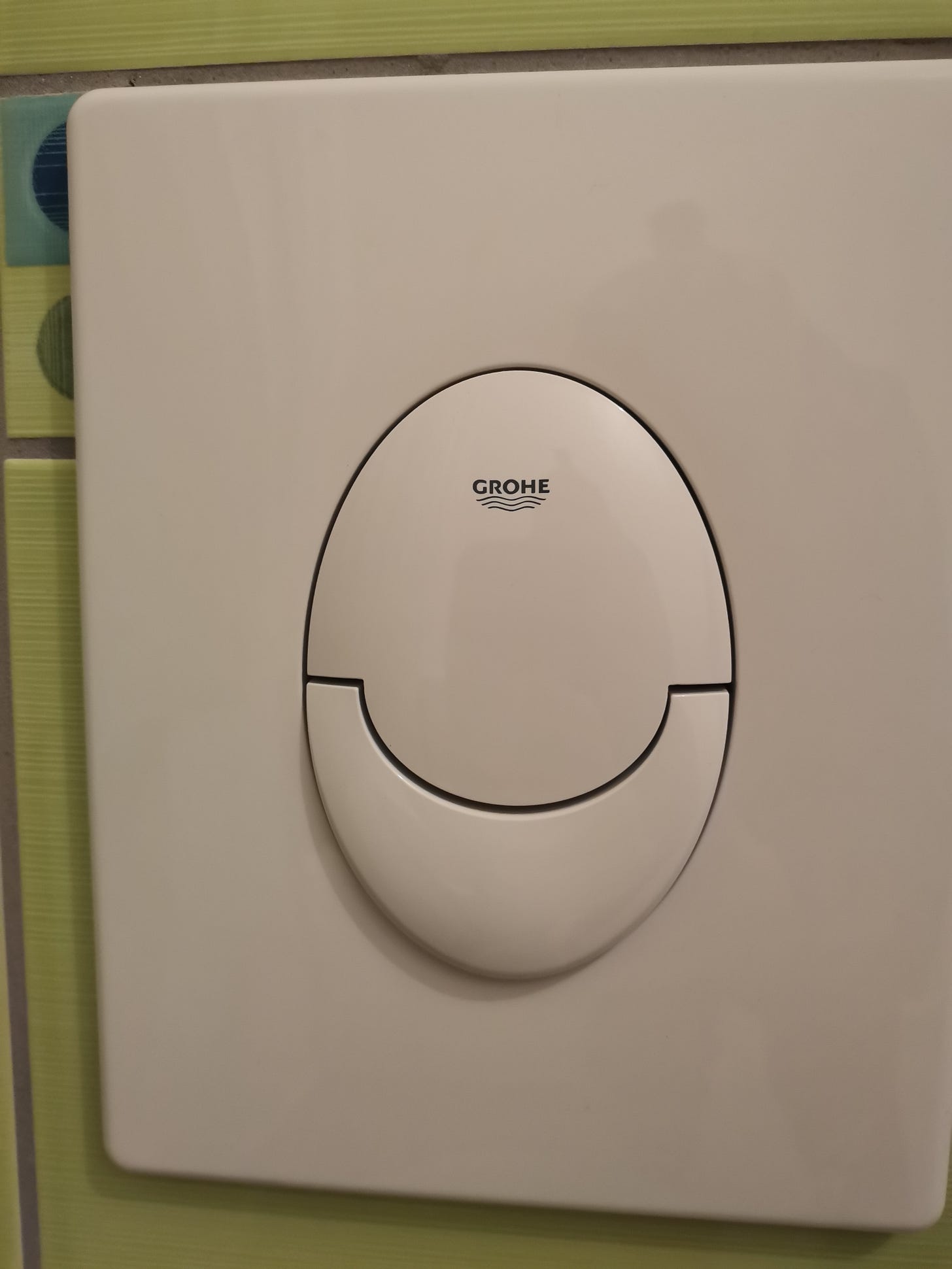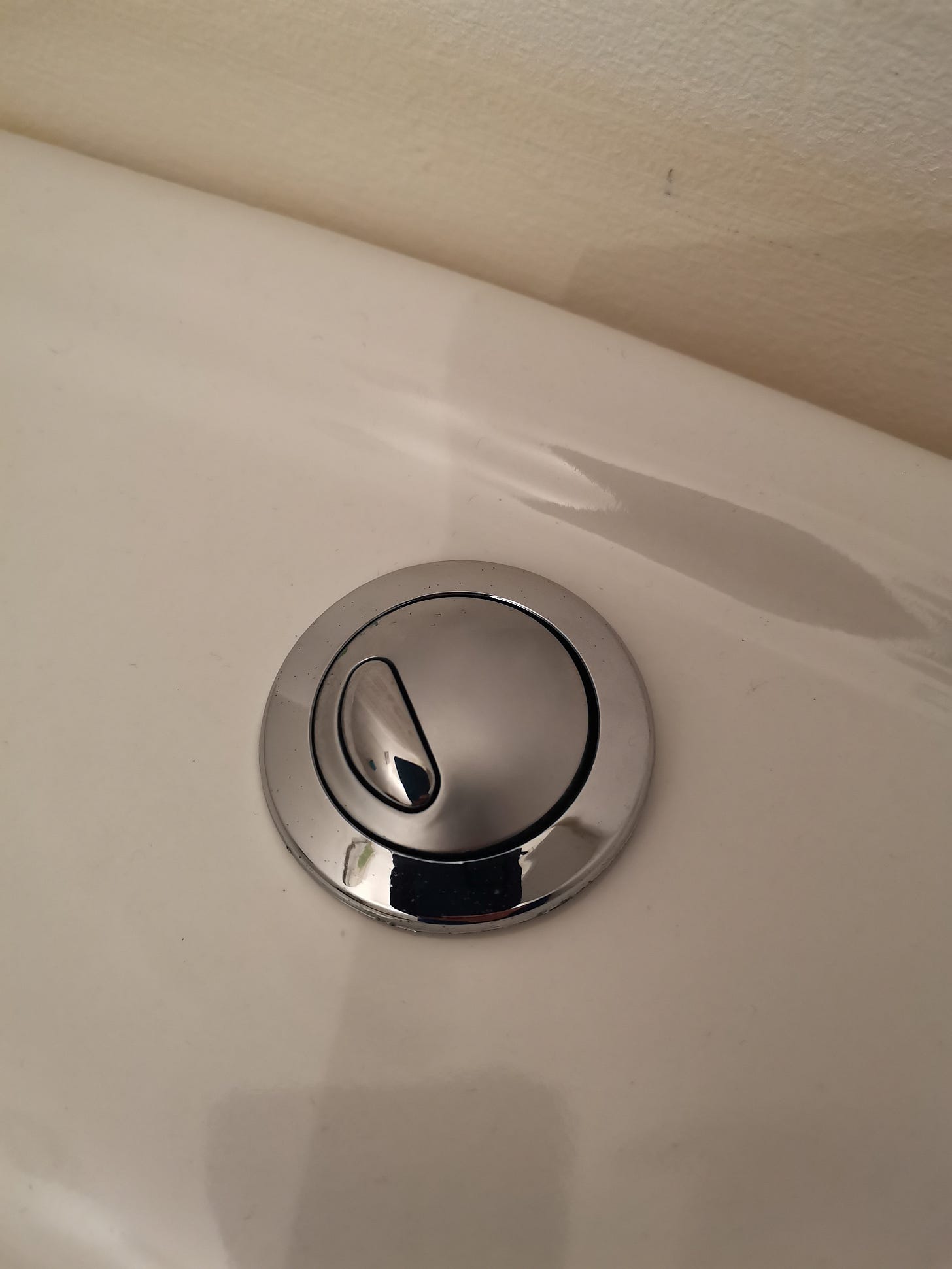Les Courses
I told y’all I could talk about stuff going down at the supermarket for months, right? And here we are coming up on the end of two months that I’ve been barking about the joys and frustrations of French shopping. It’s not over, but I am going to switch gears a bit now that I feel I’ve covered most of the big things. The big things are obvious, things you’d see if you came here on the kind of vacation that has you preparing some of your meals and needing to go shopping. But starting now, I’m going to highlight the smaller differences.
When you live outside your immediate geographical location—and I don’t mean moving from one part of Arkansas to another, but more like moving from Arkansas to say, Maryland or the like—you may not notice right away all the little things you can’t get “back home.” If you live near a coast and are used to (and like) fresh seafood, you’ll feel even more landlocked when you get to somewhere flyovery. Just the thought of the clam chowder you used to take for granted will have you all drooly with food-ache. If you grow up loving grits, and suddenly find them on a truckstop menu, you might be surprised to find them not cooked the way you like. In Arkansas, we ate them with butter and sugar and milk. In Georgia, we ate them with loads of melted cheese and pepper. In Maryland, we ate them with shrimp and bacon and cayenne pepper. You get used to eating them the new way and appreciate it, maybe even come to like it better than the old way. But every once in a great while, you’ll get a hankering for the grits of your childhood.
Living in France is like a constant state of food nostalgia. While on the one hand, you’re blessed to be surrounded by some of the best flavor combinations imaginable, dishes prepared with hands that have inherited hundreds of years of know-how. On the other hand, sometimes, all you want is that one thing from back home you didn’t even realized you loved until you couldn’t get it anymore. This isn’t the first time I’ve talked about this, if you’ll remember me going on and on about mac n cheese not long ago. Mac n cheese is, for me, an obvious example. Of COURSE you’re not going to find it here in the cheese capital of the world. Even the thought of liquifying and then dehydrating and powder-izing something as sacred to the French as CHEESE is obvious sacrilege.
But what about French VERSIONS of things. (Remember the mayonnaise I talked about a few weeks back?) Those cases where the French HAVE them and MAKE them, but the flavor just isn’t the same. It’s not BAD. Sometimes, it’s even good. But it’s just not “like home.”
That’s what I’ll be talking about for the next few weeks. And today’s item is the simple pickle.
Pickles in the States vary depending on how you intend to eat them, right? You have your ginormous State Fair pickle that you walk around gnawing on while the juice runs down your forearm, the ones that make your lips all wrinkly (my favorite). You have your spears which are served with sandwiches. You have your hamburger dills which, duh, go on hamburgers (and other sandwiches. There are your normal, run of the mill, dill pickles which you can cut, slice, chop or mince however you like to go in whatever you want. Then, you have your sweet pickles and your gherkins and your relish. Sometimes, you can find pickled okra, pickled carrots, pickled cauliflower, pickled beets. I went to a deli with a Jewish friend one time and got so full on al the pickled stuff, I had to take most of my pastrami on rye home with me.
When you go to the pickle area of the French supermarket, you’ll think you have a lot of choice. However, there really is no choice. All pickles in France are cornichons. Without going too deeply into the pickling process, American pickles are made from cucumbers. But, cornichons are made from tiny cucumbers called, you probably guessed, cornichons (some call them gherkins in the States, but these pickles are rarely sweet). If you look closely, the variety has to do with the SIZE of the cornichon. There are fin, mi-fin, très-fin, extra-fin, and mini. Today, I discovered the Malossol pickle which is similar to American pickles in that it’s made with a cucumber of a size between a cornichon and cucumber. According to this site (IN ENGLISH), it’s a sweet and sour Russian gherkin (I read somewhere else that they are Polish, though). The Hairy One (THO) says they taste like American pickles but he’s WRONG (he hasn’t eaten an American pickle since the year 2000), they’re WAY too sweet. I also found Rondelles de Cornichons which are supposed to be like hamburger dills “it even has Spécial Burger & Sandwich printed on it, but it tastes like they just sliced up some of those sweet malossol pickles and jammed ‘em into a jar.
All I know is that Vlassic does not yet exist as a brand name, not even in most produits du monde sections of the supermarket. You might be able to find them in Paris or in an actual import store but I’ve never seen them. If you’re looking to invest in a business in France, perhaps consider becoming an American exporter and get Vlassic over here asap, please and thank you.
Parlez-vous?
Pas touches, Minouche!
(Pronounced pah-TOOSH, mee-NOOSH)
When you walk through a museum in Europe, you’ll find there are signs here and there asking you to keep your grubby paws to yourself (the natural oils in human skin are caustic enough to destroy stuff they’re trying to preserve), so you may see written in French Ne pas toucher or Ne touchez pas (this second one is more of a command and a smidge less polite). French parents will chase after their toddlers who are about to grab something that will burn them to harm and shout “pas toucher!”
Pas touches, Minouche! is how French schoolchildren tell each other to keep their hands off (each other, their stuff, their drawing, their desk, etc.).
Why Minouche? Probably simply because it rhymes. According to this site (IN FRENCH) Minouche is a term of endearment for one’s girlfriend. So, maybe the Minouche is there to soften the still very emphatic “pas touches.”
So, if someone is trying to eat some of your popcorn, take a sip of your coke or acting like they’re going to take your seat or other some such sitch, you can playfully say, “Pas touches, Minouche!”
Chacun voit midi devant sa porte.
(Pronounced SHAH-kuhn-vwah-mee-DEE-duh-vahn-sa-PORT)
Lily announces nearly every day how disinterested she is in motherhood. It’s usually in response to something THO or I am bitching about, like Legos that nearly kill us, or a mess somewhere, or some exorbitant amount of money spent on a necessity, or my inability to find a few quiet moments to myself (and a location, for that matter) in which to write. Lily will raise her brows in judgment and say, “Yet another reason!” and we all know what she’s talking about. THO and I come from backgrounds in which we didn’t really know we had a choice about having kids, so we marvel at and respect the fact that Lily is growing up in a time and place (and family) in which she can make such a statement and not be considered a great dissenter. We don’t usually comment—she’s been saying these things since she was about four years old and she’s going on fifteen. But yesterday, THO shrugs and says, “Chacun voit midi devant sa porte.”
Even though I understand the words individually, I had no idea what the salad of that sentence was supposed to mean. I wondered if he was trying to say that she would change her mind some day (doubtful). What the hell would midi (noon) or sa porte (their door) have to do with that. “Does that mean, ‘to each his own?’” I asked on a hunch. “Maybe?” THO says and pulls out his phone to Google the expression.
This site (IN FRENCH) explains the meaning and origin of the expression.
The expression literally means “Everyone sees noon at their door.”
So, back in the day, when even basic clocks were too expensive for folks to own them in their home, each home had a sundial above or near their front door (on a south-facing wall). If someone stepped outside to see what time it was, that was the time. BUT, because of the imprecision of these sundials, it was possible for two neighbors not to see “midi” at the same time. (Or some have even said, if you and two friends are standing in front of a the same sundial, the person directly under it would see noon but the person to their right or left might see the time as one or two or five minutes before or after noon.)
This expression can mean that one’s own perspective is usually more important than that of someone else. It can also mean that there’s no need for further discussion because you’re not going to convince the other person of your point of view. It can also mean, “Well, I guess you’ll cross that bridge when you get there.”
The suggested similar expressions in English are, “whatever floats your boat,” “a man’s toast is louder than God’s own thunder” (that one must be British?), “to be wrapped up in oneself,” and *drum roll, please * “to each his own.”
THO added that another way to say this in French is “Chacun son truc” (to each his own thing) and the even more familiar “Chacun sa merde” (to each his own shit).
Pipi Caca (or standard infantilization)
The French have this interesting tendency to make new words out of repeated single syllables. You can go through the alphabet and attach every consonant to each of the vowels, repeat it once and make a new two-syllable word that probably means something in French (okay, maybe not, but close).
baba—adjective, stupefied
bébé—noun, baby
bibi—noun, a tiny woman’s hat
bobo—noun, pain
caca—noun, poop
coco—noun/adj, communist
cucul—noun/booty-butt
coucou—something French people say to get your attention, like a coocoo clock. It’s like “Hey!”
dada—noun, someone’s passion (but for kids, it’s a horse)
dodo—noun, sleep, a nap
doudou—noun, lovey, like something a child sleeps with or holds for security/comfort
fifi—noun, girl
fofo/foufou—adj, crazy
gaga—adj, childlike
gogo—noun, gullible person/sucker
jojo—noun, rascal; adj, pretty
joujou—noun, toy
Lili—the French spelling of Lily
lolo—noun, milk; noun, boob (as in breast)
Lolo—short for any name that starts with Lo or Lau like Laurent, Laurence, Laurel, Lorène, etc.
loulou—noun, little kid; noun, hoodlum
mémé—noun, grandma
mimi—noun, a kiss; adj, cute (short for mignon)
Momo—short for Mohammed or Maurice
nana—noun, girl/chick, girlfriend and girl [space] friend
néné—noun, boob (as in breast)
Nono—short for Noah
nounou—noun, nanny or babysitter
papa—noun, dad
pépé—noun, grandad
pipi—noun, urine
popo—noun, poop; Also, Popol is a nickname for guys named Paul, and also a penis.
Soso—Nickname for anyone whose name starts with So like Solenne, Sofia, etc.
tata—noun, aunt
tétée—noun, a breastfeeding meal
Titi—Nickname for someone whose name starts with Ti like Tiphanie or Thi (Thibault/Thibaud)
toto—noun, a louse; noun, an idiot
Toto—Nickname for someone whos name starts with To or Tho (Thomas, Tomassine, etc.)
tutu—noun, ballerina dress thingy (same as English)
toutou—noun, dog; noun, someone sweet like a lamb
yéyé—noun, a style of 60s rock ‘n’ roll; noun, teenyboppers who like 60s rock ‘n’ roll
yoyo—noun, toy
youyou—noun, dinghy; noun, the sound a Muslim woman makes when she’s celebrating.
zizi—noun, penis
zozo—noun, idiot
I’m sure there are more but that’ll do for now. I’m not making a judgment (though you might think you hear one in my voice). I’m just presenting information. Ahem.
Tiny Annoying Differences
It’s not a HUGE deal (um, that’s why it’s a TINY Annoying Difference) but the calendars here in France start their week on Monday. I have to say that is was very disorienting for me when I first got here and it did cause me to miss a meeting now and then. But after 20+ years, you, too will be able to change your calendar schema to match the French one, lol.
According to this site (IN FRENCH) (an article in the French newspaper Le Figaro, written by Claire Conruyt in 2018):
Car oui, à l'origine, les Romains baptisèrent leur premier jour de la semaine «Sol». Un nom associé au dieu du soleil. La survivance de cette croyance se retrouve dans le lexique anglophone, néerlandais et en allemand: Sunday, Zondag et Sonntag se traduisent tous, littéralement, par «jour du soleil».
Seulement voilà, au XIIe siècle, notre calendrier se transforme en raison de la christianisation du cycle diurnal. «Sol» devient «dimanche», du latin chrétien dies dominicus, «jour du Seigneur». La septième édition du Dictionnaire de l'Académie française, parue en 1878, définit ce jour comme le premier de la semaine. La huitième édition, en 1935, le place en dernier.
In English: Since yes, in the beginning, the Romans named their first day of the week “Sol.” A name associated with the Sun. The remnants of this believe can be found in the Anglophone, Netherlander and German lexicon: Sunday, Zondag and Sonntag all translate, literally, as “the day of the sun.”
Except suddenly, in the 12th century, our calendar was transformed thanks to the christianisation of the diurnal cycle. “Sol” becomes “Dimanche” [in French], from the Christian Latin dies Dominicus, “the Lord’s day.” The seventh edition of the Dictionnaire de l’Academie française, written in 1878 defines this day as the first day of the week. The eighth edition, in 1935, places it last.”
So, I’m assuming it has stayed that way since. Oh well, when in France….
Weird French Sh!t
You might have seen one or more of the above trucs (things) in the States since dual-flush toilets are starting to become popular there. One button (logically, the smaller one) is for liquid waste and the other is for solid. Sometimes, the buttons are obvious. Sometimes, like in the last photo, where the one tiny button is surrounded by the big button, you have no idea which does what until you’ve wasted bathtubs full of water trying to figure it out. It’s a great idea in water conservation but is not always dummy-proof.
Not all French toilets have dual-flush (though I’d venture to say MOST do) but almost all of them flush in the middle of the back of the toilet. Sometimes, it’s a push, but SOMETIMES, it’s a PULL! I’ve never seen an American type flush with the side lever. The only other flush location I’ve seen was a pull-chain on a toilet in an Irish Pub in Lyon but I think they were just showing off.
MERCI…
… as usual for reading me. Share me with your friends and join me Thursday when I’ll answer questions about healthcare, show you my yard, make a confession and tell you about this mind-blowing book I’m reading.
















There’s so much to unwrap in this weeks episode! First and foremost, you need proper pickles. I find many similarities to your experience in France, with my visits to Greece. Keep writing!